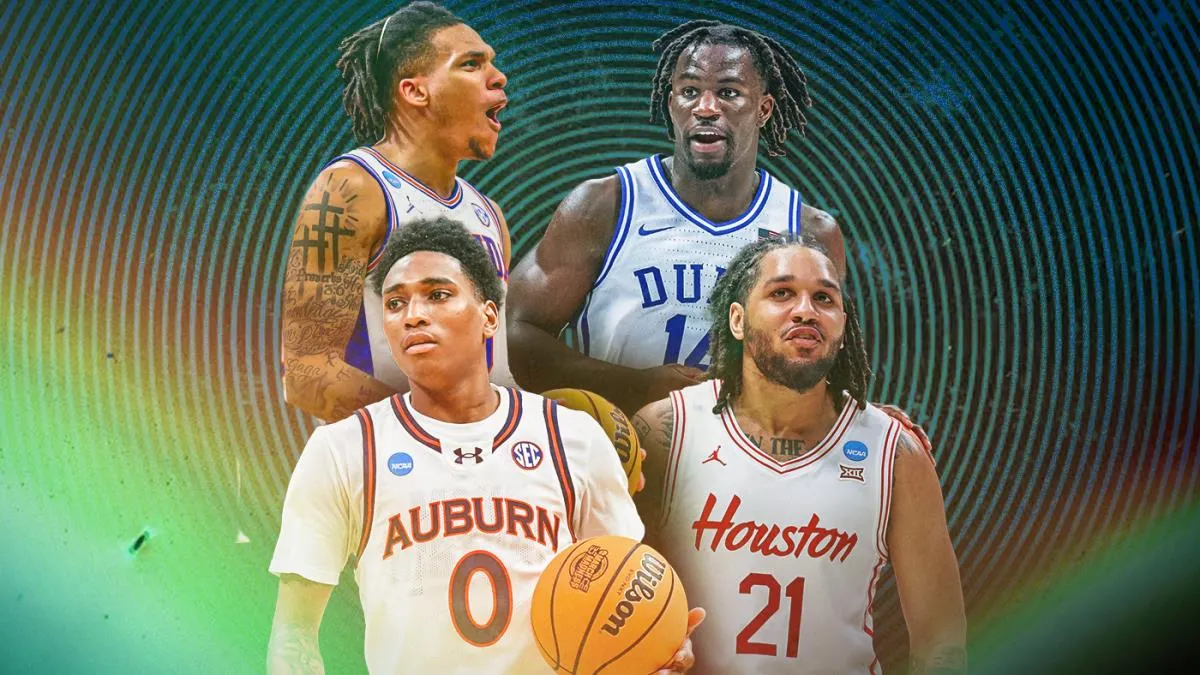
This weekend, the Final Four takes center stage in San Antonio, showcasing four teams that epitomize the transformative landscape of college basketball. Among these teams, Duke stands out for its reliance on elite recruits like Cooper Flagg, Tyrese Proctor, and Khaman Maluach, while teams like Florida have skillfully crafted their rosters through strategic decisions, putting them just two victories away from the championship title. The evolution of recruiting has redefined how teams build their competitive edge, making this year's Final Four particularly intriguing.
Under the leadership of coach Jon Scheyer, who succeeded the legendary Mike Krzyzewski, Duke has continued its tradition of excellence on the recruiting trail. Flagg, a standout in the 2024 recruiting class, led the Blue Devils to secure the top spot in national rankings, while Duke's 2023 recruiting class also performed admirably, finishing just behind Kentucky. In contrast, Houston lagged with 22nd and 49th-ranked classes in the same cycles, showcasing the different approaches in roster construction.
This season, Duke returned to the Final Four after a successful run to the Elite Eight last year. However, they faced challenges with two starters, Mark Mitchell and Jeremy Roach, entering the transfer portal. To maintain their competitive advantage, Duke relied on five freshmen from the 2024 class who have become vital contributors: Flagg, Maluach, Kon Knueppel, Patrick Ngongba II, and Isaiah Evans. This blend of youth and experience is reminiscent of Duke's championship team in 2015, which also featured a mix of freshmen and upperclassmen.
At the core of Duke's success is the strategic addition of players like Sion James, a transfer from Tulane, who has filled a critical role this season. The Blue Devils also welcomed transfers such as Mason Gillis from Purdue and Maliq Brown from Syracuse, further enhancing their depth. Notably, Gillis made history by being the first player to reach the Final Four in consecutive years with different programs, underscoring the evolving landscape of college basketball recruiting.
In Houston, coach Kelvin Sampson has developed a reputation for maximizing the potential of his players, even when they are not former blue-chip recruits. Following the departure of All-American guard Jamal Shead to the NBA, the Cougars swiftly integrated Oklahoma transfer Milos Uzan into the lineup. Uzan's performance has been remarkable, boasting a 44.5% shooting percentage from beyond the arc, contributing to Houston's status as the nation's top-ranked 3-point shooting offense.
The other core players in Houston's lineup include J'Wan Roberts, Emanuel Sharp, and L.J. Cryer, the latter being a former transfer from Baylor. The team's identity is deeply rooted in defense, making them a formidable opponent in the Final Four.
Houston has also nurtured homegrown talent, with players like Terrance Arceneaux and Ja'Vier Francis contributing significantly to their success. The combination of experienced transfers and homegrown players has created a balanced roster that embodies the essence of modern college basketball.
Auburn's roster construction emphasizes experience, with standout player Johni Broome leading the charge. Broome has made a remarkable impact as a former transfer from Morehead State, helping Auburn reach the Final Four for only the second time in program history. The team features several players with extensive game experience, including Chad Baker-Mazara and Miles Kelly, who have played over 100 games each.
Coach Bruce Pearl has successfully blended seasoned players with emerging talents like Tahaad Pettiford, a highly regarded recruit from the 2024 recruiting class. This mix of experience and youth has been pivotal in Auburn's postseason success.
Notable transfers like Denver Jones from FIU and Miles Kelly from Georgia Tech have also solidified Auburn's lineup, contributing to their depth and versatility on the court. The team’s success is a testament to Pearl's ability to create a cohesive unit capable of competing at the highest level.
Florida has taken a unique approach to roster building under coach Todd Golden, focusing on players who emerged from mid-major backgrounds. The Gators’ star, Walter Clayton Jr., previously shined at Iona, while Alijah Martin aims to make history as the first player to start in the Final Four for two different teams. Florida's roster includes several key transfers who have seamlessly integrated into the team's identity.
The Gators’ lineup features players like Will Richard and Rueben Chinyelu, both of whom have made significant contributions since transferring from their previous schools. Florida's success is a product of Golden's ability to find talent in unexpected places, propelling them from early tournament exits to the Final Four in just three seasons.
The Final Four teams this year demonstrate the diverse strategies in college basketball roster construction. From Duke's elite recruiting class to Florida's innovative approach, each team embodies a unique path to success. As the games unfold in San Antonio, the focus will be on how these teams leverage their strengths to compete for the coveted championship title.